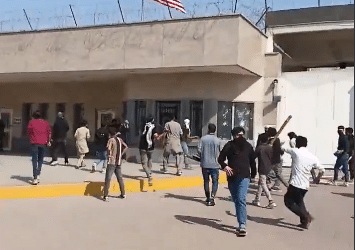One of the top reasons that Prime Minister Benjamin Netanyahu launched a surprise attack on Iran was to prevent President Donald Trump from reaching a new nuclear agreement with Tehran, according to the Jerusalem Post.
The Post spoke “to a wide range of top political and defense decision-makers” about Tel Aviv’s move to launch an offensive war against Iran. The sources said that one reason Israel chose to attack when it did was due to concerns that Trump could reach a nuclear pact with Iran that made too many concessions from the perspective of Netanyahu.
“Trump continued to flirt with Iranian diplomacy, letting two of his own deadlines pass, proceeding on a path that only seemed to make sense if he was going to eventually be willing to make concessions that Israel did not want him to make,” the outlet reported.
However, Tel Aviv did manage to interfere in the nuclear negotiations. “Mossad Director David Barnea and IDF Intelligence Chief Maj. Gen. Shlomi Binder, along with Strategic Affairs Minister Ron Dermer and others, did all they could to convince Trump’s team to harden their negotiating positions, with some success.” The article continues, “But when they saw that Iran was digging its heels to maintain low-level uranium enrichment and refusing to destroy its advanced centrifuge fleet, conceding only that it would put them on ice, these intelligence and diplomatic officials feared the worst could come if a new and bad nuclear deal would be agreed to at any moment.”
Other factors that led Tel Aviv to attack Iran were the weakness of Tehran’s allies in the region, Washington normalizing ties with Damascus, and Iran’s two missile attacks on Israel in 2024. Those strikes were retaliation after Israel bombed the Iranian embassy in Damascus and assassinated a Hamas political leader in Tehran.
Notably, contrary to Israel’s publicly stated rationale, the primary motivations for the June 13 attack did not include concerns over Iran’s nuclear program.
“Yes, the Islamic regime had accelerated the activities of its weapons groups so that maybe the time it would take to make a nuclear weapon – or many of them – was reduced from two years to one year or even several months,” the Post explained. “But seeing the degree to which Israel had penetrated Iran’s nuclear and military programs, it is clear that Jerusalem had a clear line of vision on how far Iran had progressed – and sources had conveyed to the Post not long ago that Tehran was still not that close to the point of no return.”
American and Israeli officials have justified their aggressive war on Iran by claiming the country could obtain a nuclear weapon within a matter of weeks. Repeated US intelligence assessments over nearly two decades have concluded otherwise, however, finding no indication that Tehran is seeking to build a bomb.

































